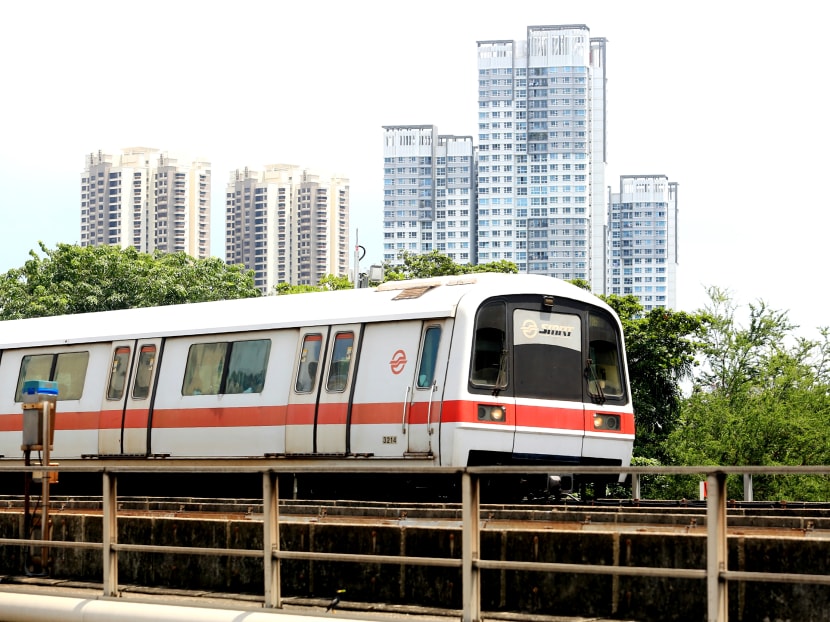S$60m SMRT, NTU lab to find ways to improve rail reliability
SINGAPORE — A S$60 million laboratory to research technologies to improve the reliability of Singapore’s train network and speed up recovery times has been set up by transport operator SMRT and the Nanyang Technological University (NTU).
SINGAPORE — A new S$60 million laboratory, to be built in the Nanyang Technological University (NTU), will start researching new technologies to help improve the reliability of Singapore’s rail network and speed up recovery times.
Commuters will need to wait a while more before any research bears fruit though — it will take between one and three years for 13 lab projects to be completed, because some solutions are not available in the market now, and time is needed for trials.
Set up by rail operator SMRT and NTU and launched officially on Friday (May 20), the SMRT-NTU Corporate Laboratory has two research tracks.
The first will focus on methods to monitor the system and detect faults, with the goal of resolving problems even before they happen. This will involve hardware such as thermo-acoustic sensors, placed on trains and along various parts of the rail, where the temperature fluctuations will help to detect cracks and defects.
Through 3D-printing, sensors may also be customised to fit inaccessible spots. Using real-time results, the aim is then to have faulty components replaced on the same day.
The second research track will look into improving train system reliability, by studying previous failures using advanced prediction and assessment methods, with the aim to improve maintenance schedules, for instance. Software such as analytical tools will be used to tackle this.
At the opening of the lab officiated by Transport Minister Khaw Boon Wan, NTU president Bertil Andersson said: “While we can have more contingency plans, a complete design overhaul is not really a practical option for mature rail systems that have already been operating for many years ... A key area of research will be system resiliency — designing and improving rail systems that are robust and reliable.”
Part of the work will involve developing customised solutions. Mr Lee Ling Wee, managing director of SMRT trains, said: “There are certain parts of the rail that this system cannot detect. We looked through research out there, nobody can (offer a solution). In general terms, of course, there is technology out there, but they don’t cover 100 per cent.”
If successful, Mr Lee said, the customised solutions may even be exported to other countries.
During phase two of the lab’s operations, another 10 projects may be started depending on SMRT’s requirements, Professor See Kye Yak, who is the lab’s director, said. This will probably be by year-end.
The lab, which will temporarily be using NTU’s existing facilities, also aims to train 50 research engineers, 35 doctorate students and 100 undergraduates for the rail industry.
SMRT, NTU and the National Research Foundation all contributed equal funding to the lab’s cost, which is expected to last the next five years.
This initiative comes on the back of recommendations by an independent advisory panel appointed last December to review the power supply system of all MRT and LRT lines. Among other things, the panel proposed that there be more frequent inspections of assets and replacement of components, along with the adoption of new technologies to monitor the system.







